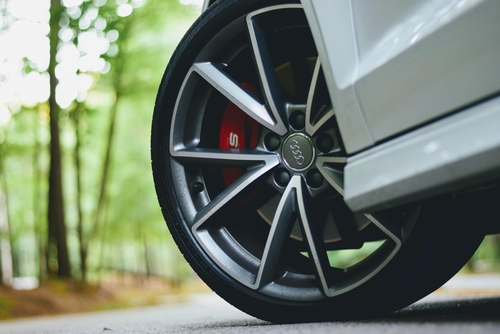Tyre Search
Guide To Energy Saving Tyres

20% of a car's fuel consumption is due to the tyre. To reduce fuel consumption, the forces opposing the vehicle's movement need to be decreased. Therefore, a decrease in tyre rolling resistance leads to a reduction in fuel consumption.
Energy saving tyres have low levels of rolling resistance, therefore providing a reduction in fuel consumption, and subsequently reducing vehicle CO2 emissions.
What's The Difference Between Energy Efficient Tyres And Normal Tyres?
The difference between energy efficient tyres and normal tyres is lower rolling resistance compared to normal tyres. It is the lower rolling resistance which gives energy saving tyres all of their numerous advantages. Tyre manufacturers achieve lower rolling resistance by engineering tyres with a special compound that keeps heat resistance with the road at a minimum, achieving a lower rolling resistance.
Rolling Resistance And Fuel Efficiency
In conclusion, a choice to switch to energy efficient tyres will not only have benefits for the driver, but also the environment. The personal benefit is the fact that you can get so much more out of your vehicle in terms of mileage, due to the lower rolling resistance. As a result of this, energy saving tyres can save up to 440 litres of fuel over the lifetime of the tyres. As well as saving money, less harmful emissions are expelled into the atmosphere, making energy efficient tyres the most eco-friendly option.

What Are The Advantages Of Energy Saving Tyres?
The main advantages of energy saving tyres include:
Reduced rolling resistance -
Rolling resistance is the resistance that the tyre comes across when in contact with the road. If a tyre has a lower rolling resistance this means that the tyre can roll for longer on the road before the resistance eventually makes it come to a stop. Benefits of a lower rolling resistance include a better fuel and energy consumption, as the vehicle can move for longer without using any more energy.
Less fuel consumption -
As touched on in the previous point, fuel consumption is dramatically improved due to reduced rolling resistance. Tyres account for 20 to 30% of a vehicle’s fuel consumption, therefore choosing energy efficient tyres with reduced rolling resistance, resulting in less fuel consumption.
Decreased pollution levels -
A final benefit of energy saving tyres is decreased pollution levels. This is due to the fact that less fuel is being consumed, which means less harmful car emissions are being put into the atmosphere.
We stock a number of different tyre types- if you would like to read more on these different types of tyres, please click on the links below for further reading.


 Sign up for SPECIAL OFFERS
Sign up for SPECIAL OFFERS
